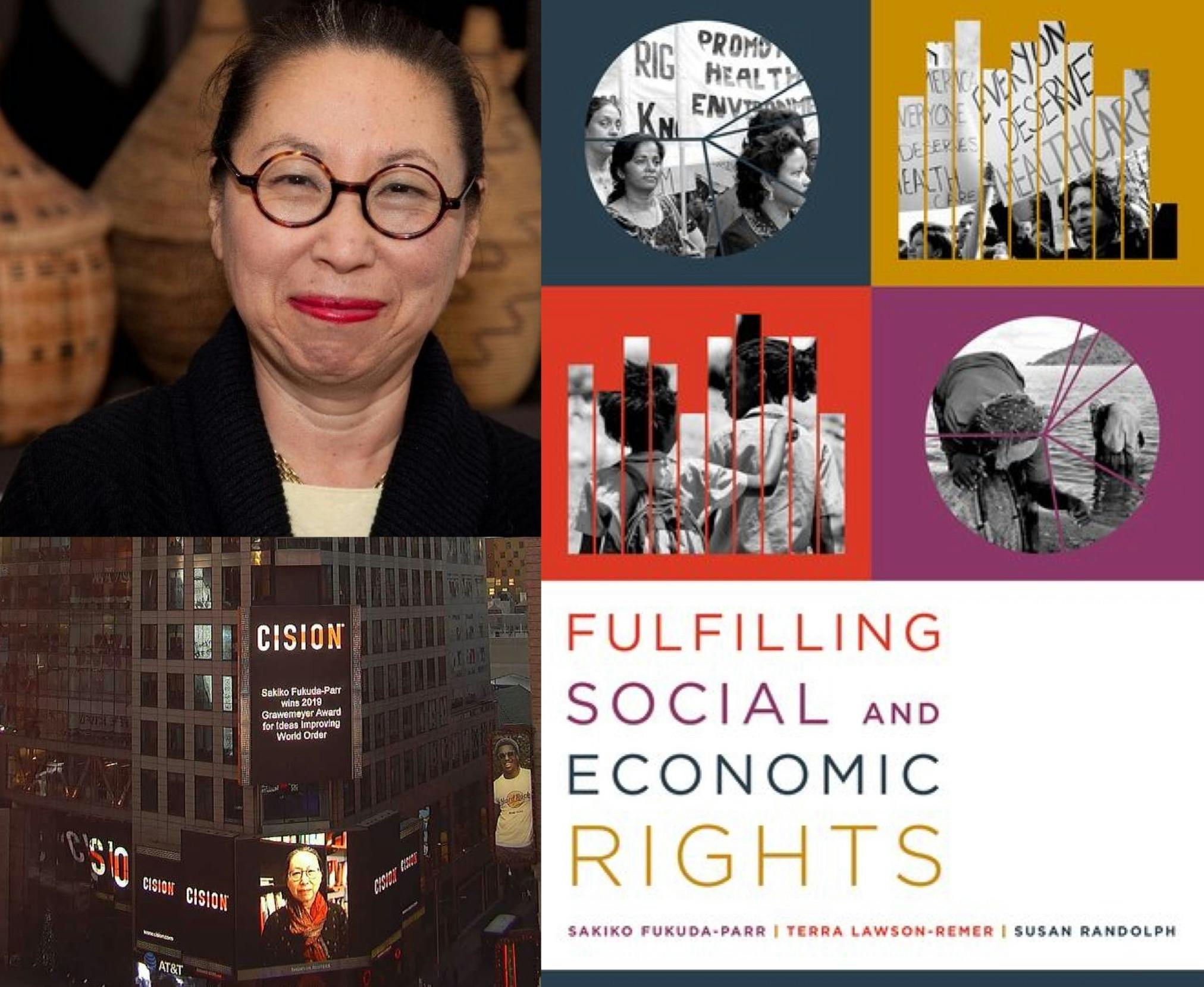
The award, presented annually by the University of Louisville, was founded by Charles Grawemeyer in 1984 and is based on the belief that individual ideas can affect the world in significant ways. Grawemeyer Award recipients receive $100,000 to further their work and will be invited to Louisville to talk about their work in spring 2019.
Fukuda-Parr accepted the award along with the book’s co-authors, Terra Lawson-Remer, founder and managing partner of the Catalyst Project, and Susan Randolph, associate professor emerita in the Department of Economics at the University of Connecticut.
“I feel hugely honored by this award for Improving World Order,” Fukuda-Parr said. “I hope it shines a light on social and economic rights. These human rights have long been neglected and, in fact, are increasingly threatened by policies being introduced in countries around the world. I hope that the award contributes to the many initiatives where people are mobilizing to claim their rights and challenge economic models that create poverty and increase inequality.”
Fulfilling Social and Economic Rights provides readers with an innovative framework designed to help countries expand human rights. In the book, Fukuda-Parr discusses the Social and Economic Rights Fulfillment (SERF) Index, which provides a rigorous method for measuring how well countries are performing in guaranteeing basic human rights to their citizens and allows for a comparison of their records on economic and social rights. The book also looks at policies used to advance human rights and how their application, in conjunction with public pressure, can lead to results.
Fukuda-Parr says that the SERF Index is a “quantitative way of assessing how different countries are performing in fulfilling economic and social rights,” such as the right to health, housing, and education. “Freedom from want is a basic condition of human freedom and dignity,” she said. According to Fukuda-Parr, the United States falls short because of its failure to provide its people with universal healthcare.
“I am indebted to my co-authors and editors at OUP. I also want to thank all my family, friends, and colleagues for their support,” Fukuda-Parr said. “The Independent Panel on Global Governance for Health at SUM/University of Oslo and the International Affairs programs at The New School have been fantastic places to pursue new ideas to rethink economic models for fulfilling socioeconomic rights. I have been privileged to be part of these communities.”